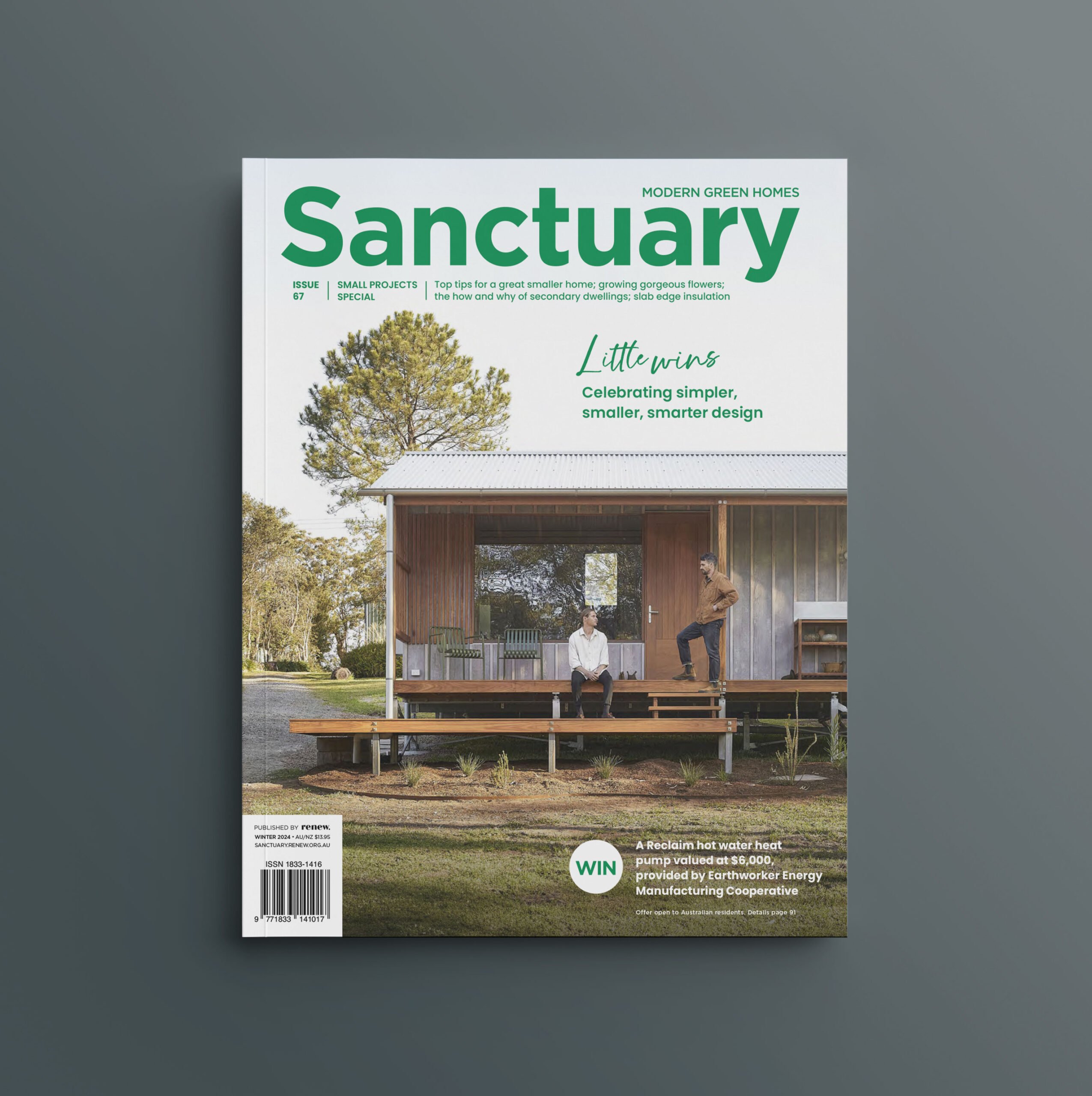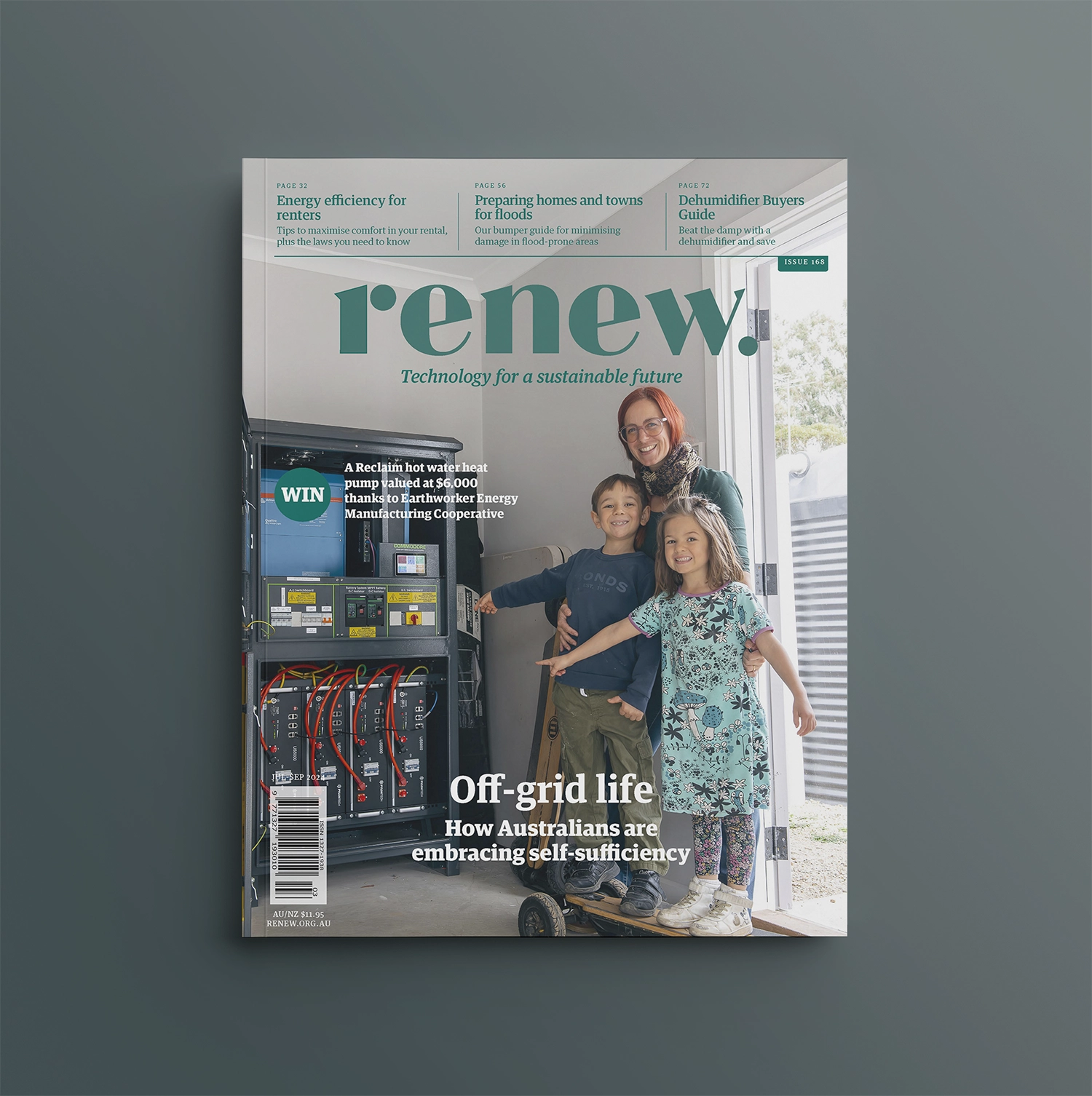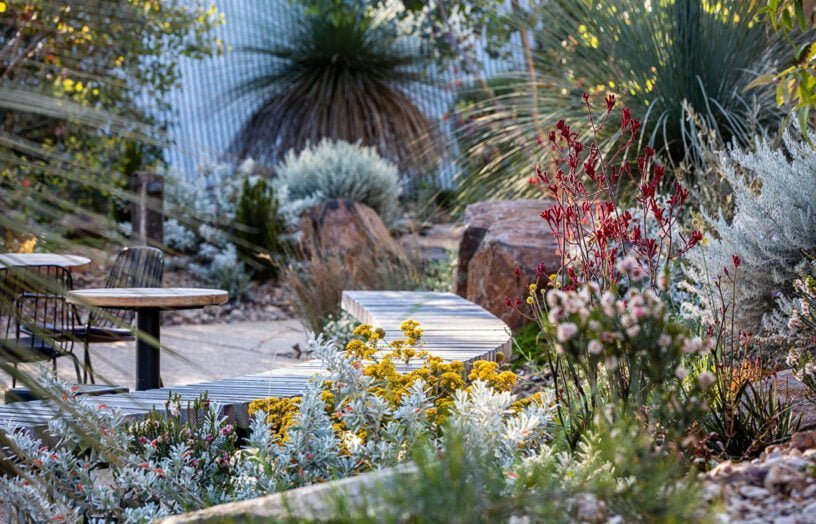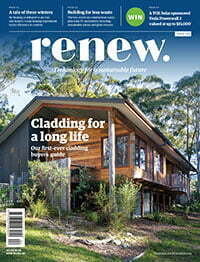Donna to the (plant) rescue
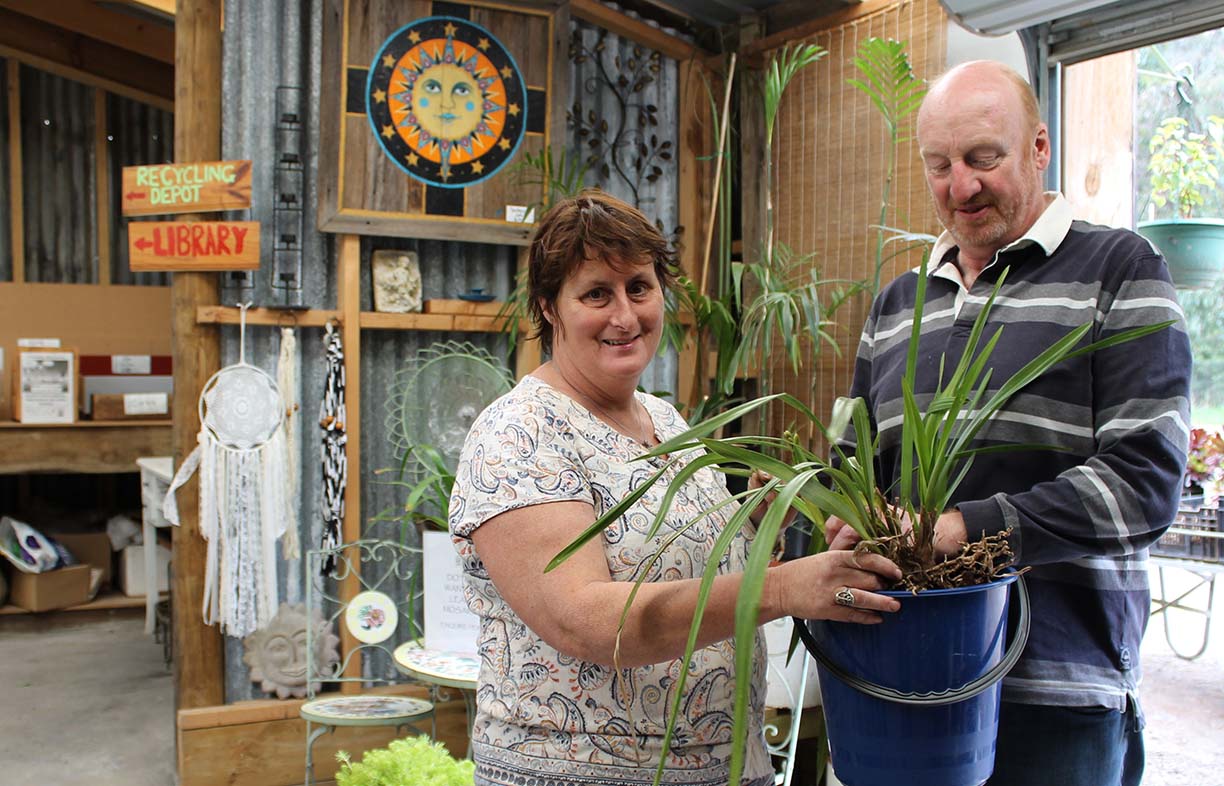
Most nurseries recycle materials such as plastic growing containers, but what happens to any unsaleable plants? Sarah Coles speaks to Donna Grundy about plant rescue and an unusual business model.
I’m taking photographs at Recycled Roots and Leaves in Silvan in Melbourne’s Dandenong Ranges, when some local residents arrive. The couple browse the plant nursery for a few moments and then something out of the ordinary happens—they open the boot of their car and return carrying Cymbidium orchid plants, which they donate to the business owner. This is the first time I have ever seen people bring plants to a nursery.
As I walk around, I also notice something else—although the business has only been here for a few months there is nothing new on the premises. All of the plastic pots are pre-loved, the compost bins look worn in, the shadehouses are constructed from found materials, the tables are rickety, the shovels slightly rusted.
Recycled Roots and Leaves was set up to tackle the issue of waste within the wholesale plant industry, but it has grown into something more. Owner Donna Grundy looks around: “This is not just about plant rescue … everything is rescued.”
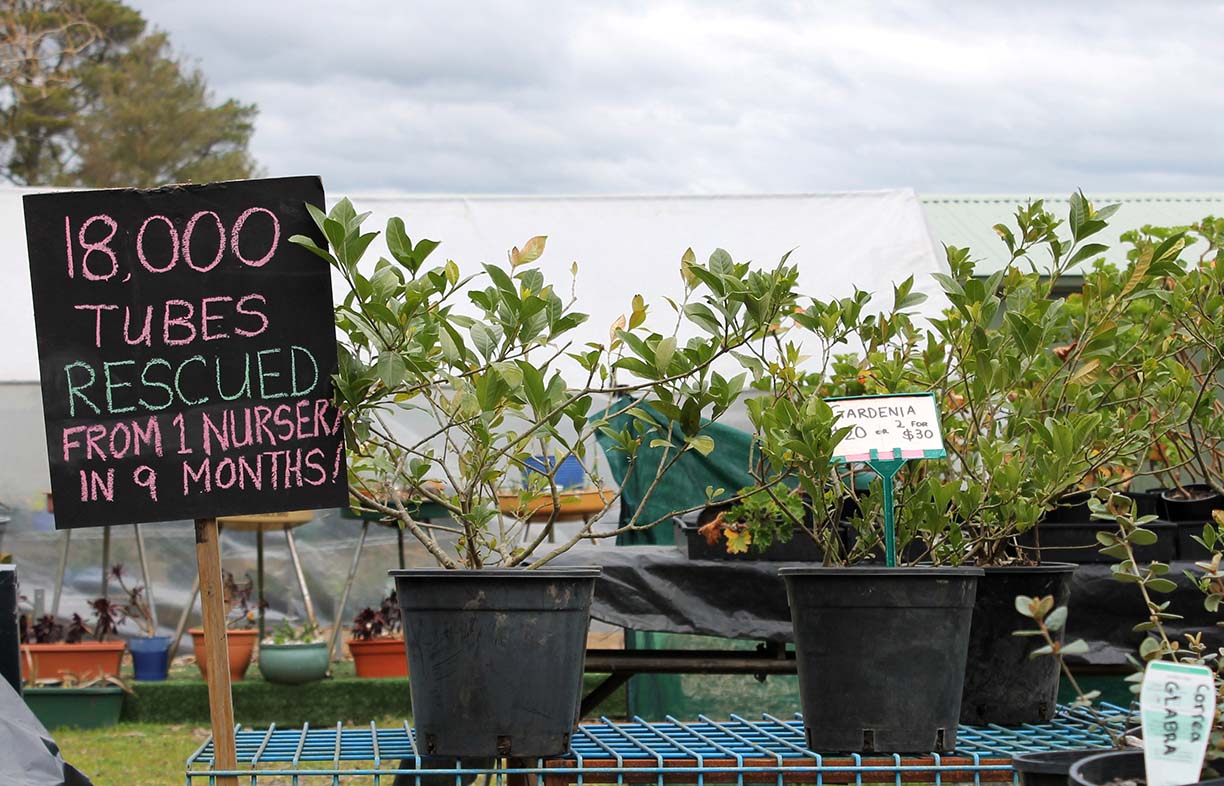
In 2014, Nursery & Garden Industry Australia (NGIA) commissioned an environmental consultant to produce a report investigating waste management and disposal practices at plant nurseries. The report, ‘Assessing waste streams in Australian production nurseries’, estimates that a minimum of 68,000 tonnes of waste is generated by the nursery and garden industry in Australia each year. While 68,000 tonnes only represents approximately 0.001% of total waste generated in Australia in any given year, it is a waste stream with massive room for improvement. And this improvement is in evidence at Recycled Roots and Leaves.
In broader society, gains have been made in the reduction of food waste, e-waste, single-use plastics, disposable coffee cups and fast fashion. But the shift toward sustainability has been slow in the wholesale nursery sector.
Donna has worked in plant nurseries for over 25 years and describes waste management practices within the industry as archaic. “The amount they throw out is phenomenal. For every plant tray on that rescue table, there’s 100 out back in the skip.” For the past 12 months, Donna has salvaged plants from wholesale nurseries which were otherwise considered waste. “I have always rescued plants. I can’t bear to see a single thing thrown out.”
Wholesale plant nurseries often compost green waste on-site, and some send it to commercial processing facilities to be mulched or composted, but some send their green waste to landfill. When organic matter decays in landfill it produces methane gas, which contributes significantly to greenhouse gas emissions. And Donna says that many growers burn unsold bare root tree stock.

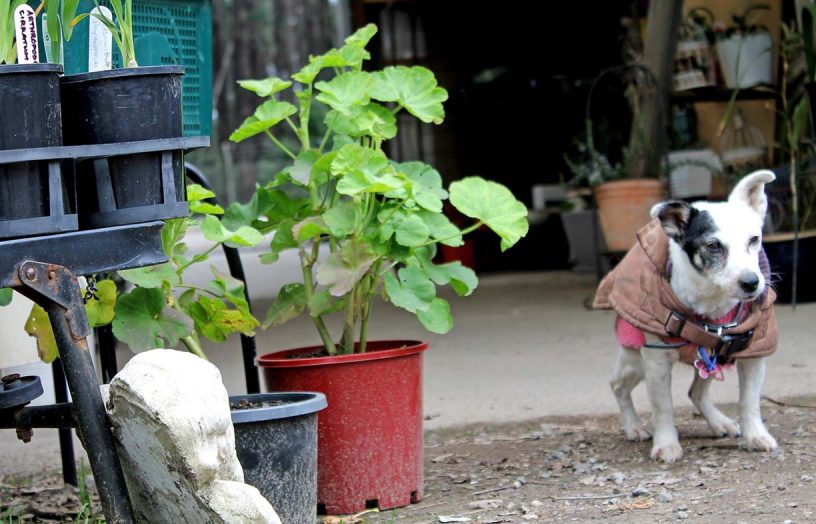

Donna approaches wholesale nurseries with an economic argument. “One nursery owner had 180 plants in 10 cm pots and, rather than weeding them, he was going to toss the lot, with the plastic pot, into a skip then to landfill. It costs him $160 every time this skip is filled and has to be emptied. He’s a small-time grower so he was stoked to come on board because it would save him money.”
Donna’s plant rescue business is thriving. “When I started 12 months ago, I had 12 varieties of plants, now I’ve lost count. It’s way over 200.” Near the shadehouse is a row of old BBQs with plants growing out of them. Donna laughs: “If I see a BBQ at the side of the road I’ve got to do a U-turn.”
Nurseries composting their unsold plants can affect biodiversity as fertiliser from the discarded stock may leach into the soil and groundwater. Donna explains: “Wholesale nurseries often use groundwater from a dam or a bore. When fertilisers leach into this water supply, the plants become over-fertilised which can create inconsistent plant growth and can be harmful to some plant species.” Eutrophication occurs when nursery run-off with a high nutrient load (nitrogen and phosphorous) winds up in local streams or creeks. “I challenge nurseries to test the water on their properties,” says Donna.

And then there is the problem of the plants that are sold. They are often what Donna refers to as “force grown”—that is—they have been grown quickly with a lot of water and fertiliser. “Then when they get to your garden they go into shock and they don’t survive.” Donna thinks that her secondhand plants are tougher. “They get no TLC whatsoever. They get one Seasol (liquid seaweed fertiliser) and then that is it; sink or swim—and almost all swim beautifully. I don’t have any regular watering regime either.”
Recently, major supermarket chains started selling bruised, deformed and discoloured produce as part of an initiative to lessen food waste. Wholesale plant nurseries are not keeping up with a public shift toward sustainability, Donna says. “All of my customers are on some sort of war on waste. The industry is moving way too slow. They need to listen to what the customers want and look outside the square.”
Donna’s initial goal was to tackle waste in the wholesale plant industry through education, but her vision has grown. She has connected with disability support programs to run microenterprises—one sells rescued succulents, another trades in bonsai. Donna has also set up community-based recycling programs for household waste such as ink cartridges, lightbulbs and batteries. At the entrance to her shop is a bathtub for people to put plastic pots or excess plant cuttings from their gardens. There is a plant book library and a cafe. She also runs environmental education programs for schools.
“Plus I’m planning community gardens on site: Tasty Az (‘a catering company with a community edge’) will incorporate these gardens into a paddock-to-plate program. The produce from these gardens will be turned into tasty meals for the poor and homeless. There’s a zillion other ideas!”
‘National waste policy: Less waste, more resources’, 2018: bit.ly/NWPLWMR
An investigation into waste management in Australian production nurseries, report by David Hunt: bit.ly/WMIAPN
Garden centres that support Sustainable Gardening Australia: bit.ly/SGAFGGC
Nursery waste self-assessment form for plant nursery owners to assess their operation: bit.ly/NWSASF
A 2005 report into waste water recycling in nurseries: bit.ly/IC-WRIN
Further reading
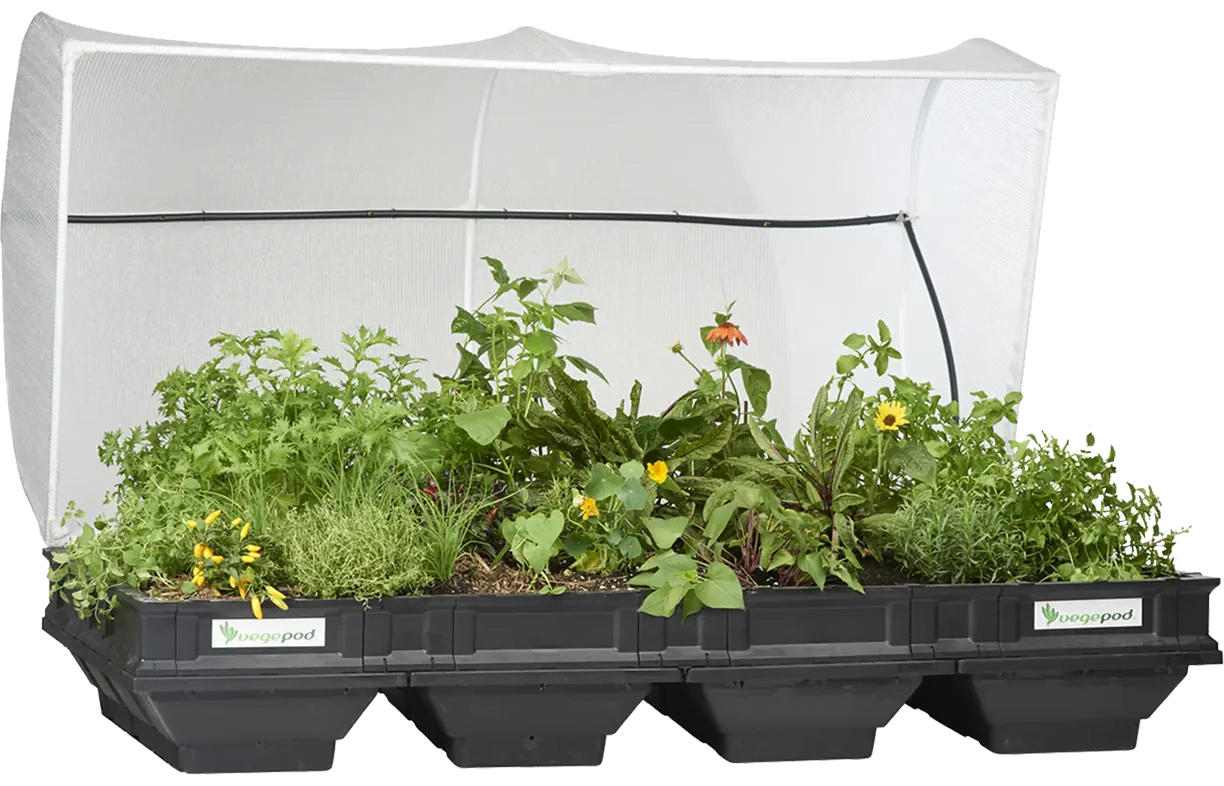 Products
Products
Product profile: Pods for veggies
With the cost of food trending rapidly upwards, the move to growing food at home has become a popular one. While it’s easy if you have a garden, what do you do if you don’t?
Read more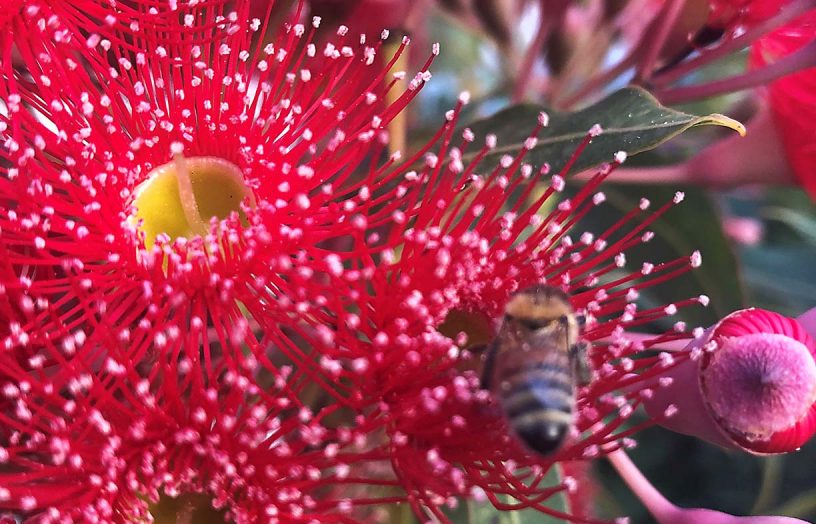 Water saving
Water saving
Nurturing your native garden
Just how much maintenance do you need in a native garden? Robyn Deed gets some tips from landscaper Haydn Barling on how to sustain a beautiful, biodiverse garden in the suburbs.
Read more